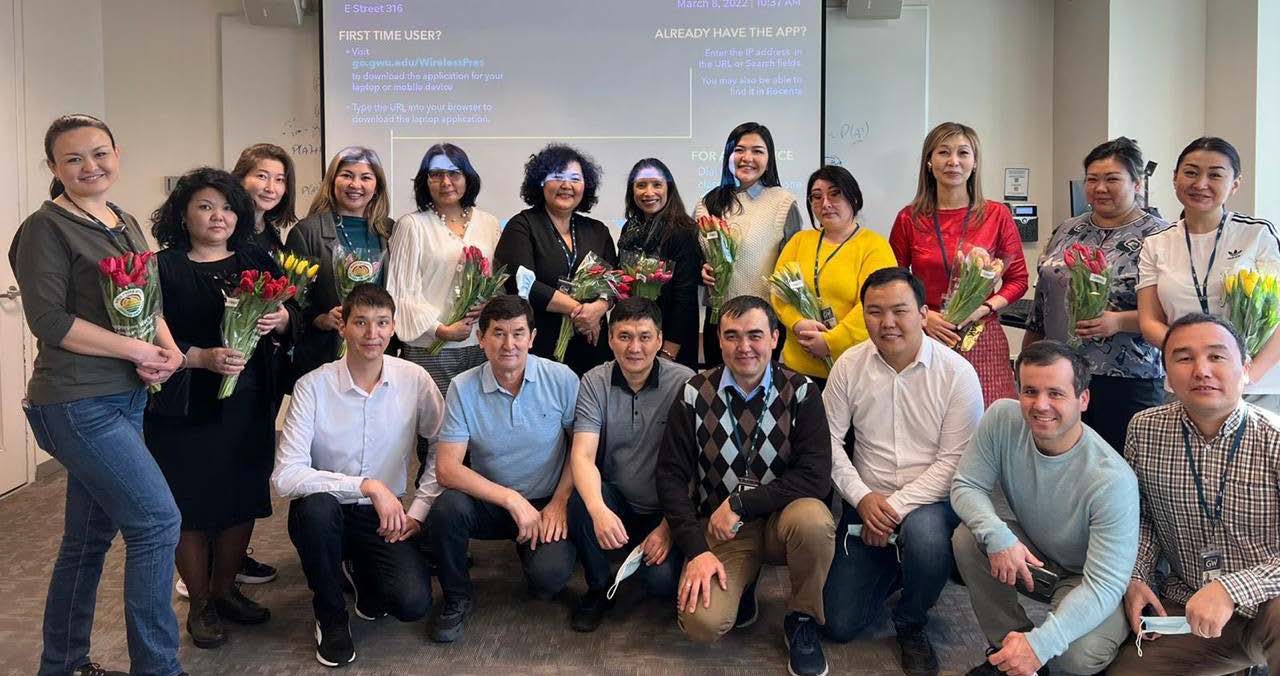
The Bolashak Visiting Fellowship Program is for young, mid-career, and senior scholars from Kazakhstan who would like to conduct research at the Central Asia Program hosted at the Institute for European, Russian and Eurasian Studies, the Elliott School of International Affairs, the George Washington University.
- Individual Fellows: Scholars who want to be in residence at GWU for a period of one month to one year for work on a specific research project
- Non-degree training programs: Scholars, professors, teachers or experts who would like to participate in a 10-week non-degree training program, offered by the CAP, on International Affairs and Public Policy or Education Management. Each Program is offered once a year, usually during the fall.
Bolashak Cohorts
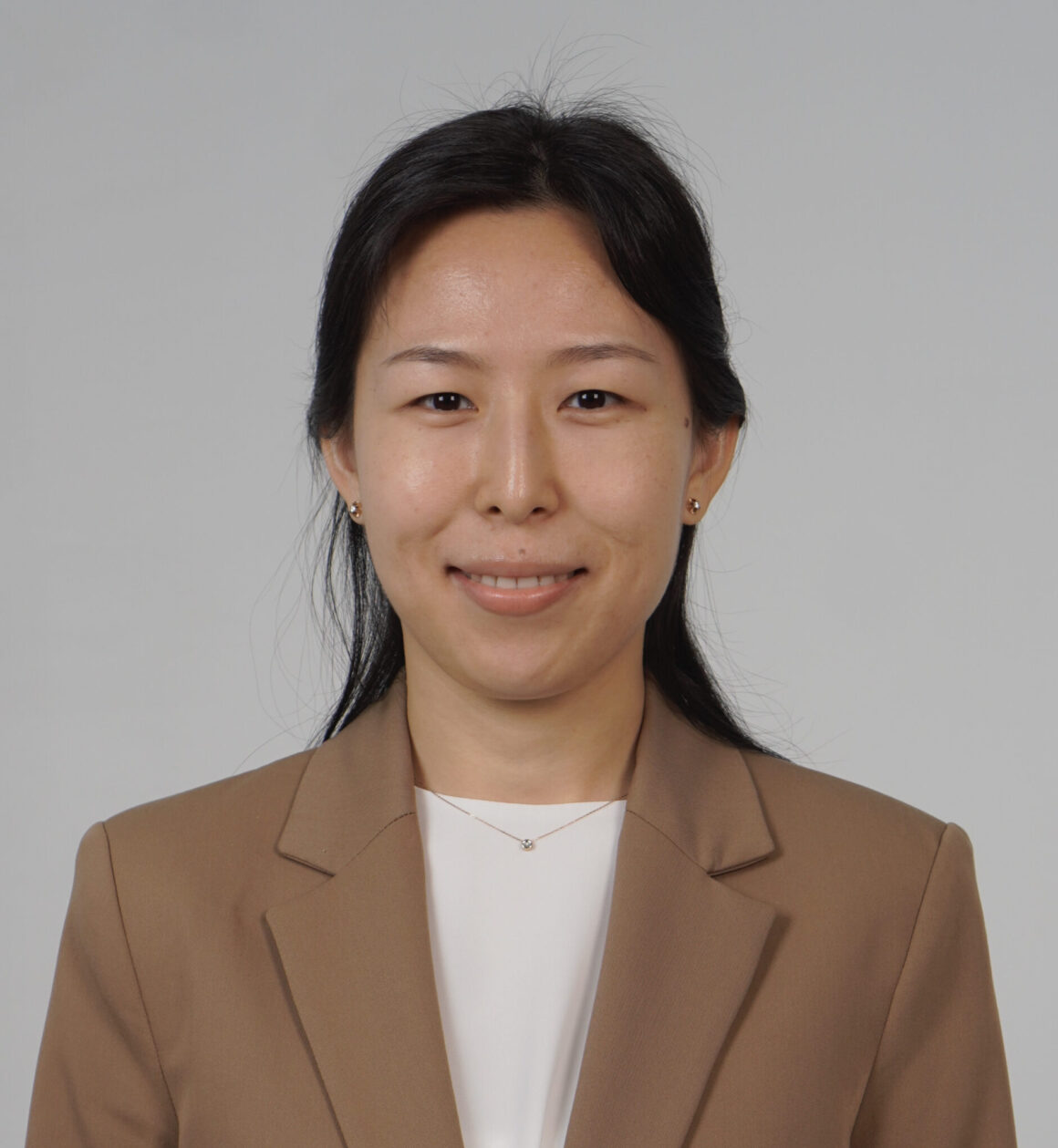
Aizada Nuriddenova is an Assistant Professor in the Social Sciences Department at Suleyman Demirel University (SDU) in Kazakhstan. She holds a PhD in International Relations, specializing in Chinese foreign policy, from the School of International and Public Affairs (SIPA) at Jilin University in China. Her research interests are centered on Chinese foreign policy and regionalism in Central Asia, with a particular focus on Sino-Central Asian engagement, Consultative Meetings in the Central Asian region, and the Belt and Road Initiative. Before joining SDU, she was a faculty member at Gumilyov Eurasian National University in Astana, where she taught in the Department of Oriental Studies.
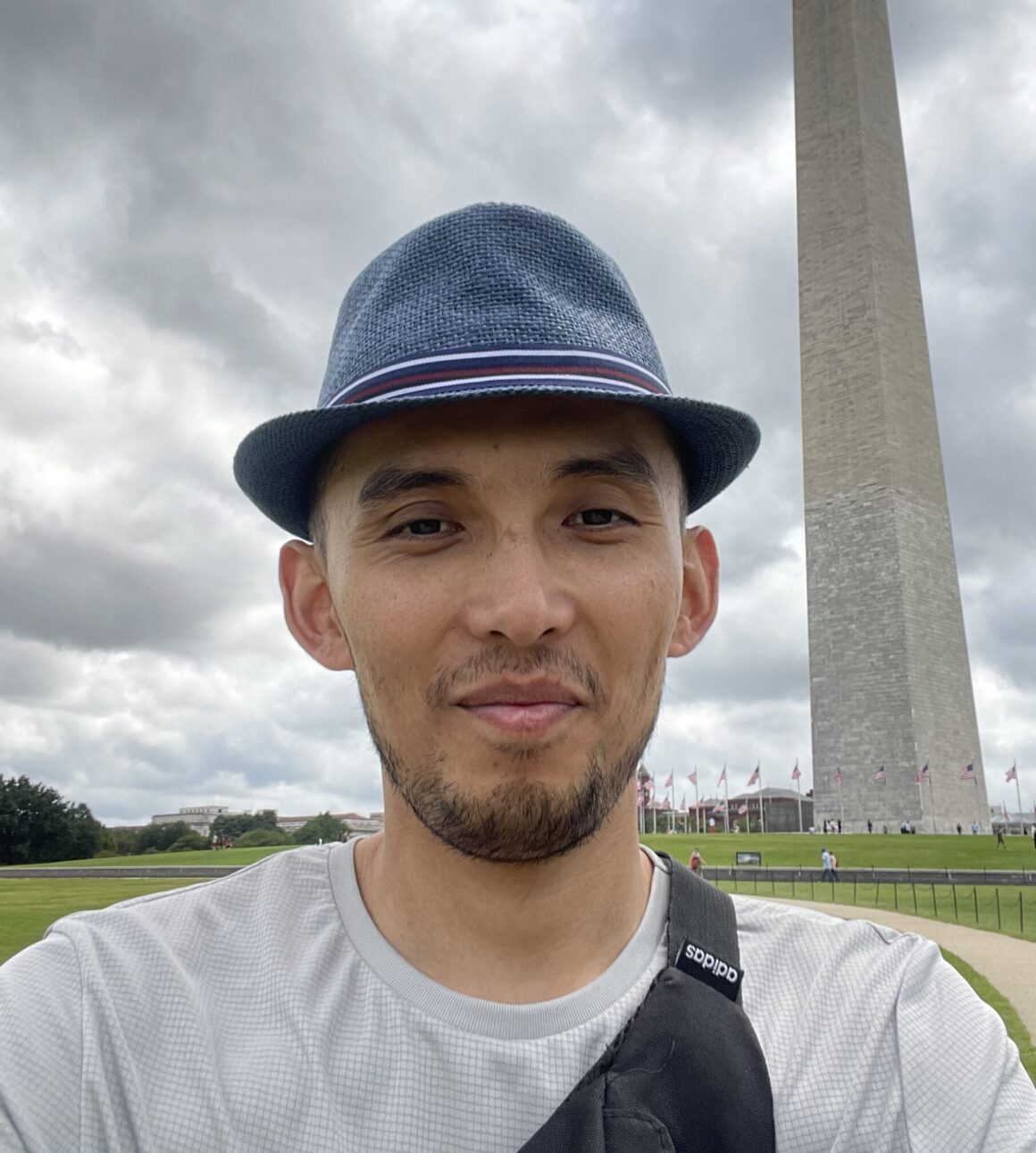
Alibek Bolat, PhD, holds a Master of Juridical Sciences and is a Senior Lecturer in the Higher School of Law and Economics at I. Zhansugurov Zhetysu University. He completed his PhD thesis in 2022 on “Modern issues of law enforcement practice of principal of disarmament in international security law.” He has contributed to more than 40 scientific articles and is the author of 5 textbooks on issues in criminal law, environmental law, and juvenile law.

Azhar Shaldarbekova, PhD, is an Associate Professor of History in the Department of Turkology at Gumilyov Eurasian National University. She a two-time recipient of a Bolashak Fellowship. Her first scientific scholarship was in the field of “Sources, historiography and methods of historical research.” Her research interests include Eurasian civilizations and cultural relations among Turkic peoples. Previously, she has taken part in research projects aimed at studying Turkic ethnic groups and language policy in Kazakhstan, and international Turkic organizations. She has contributed to 50 research articles, including 7 articles in Scopus indexed journals, as well as 2 monographs, and 2 educational teaching aids.
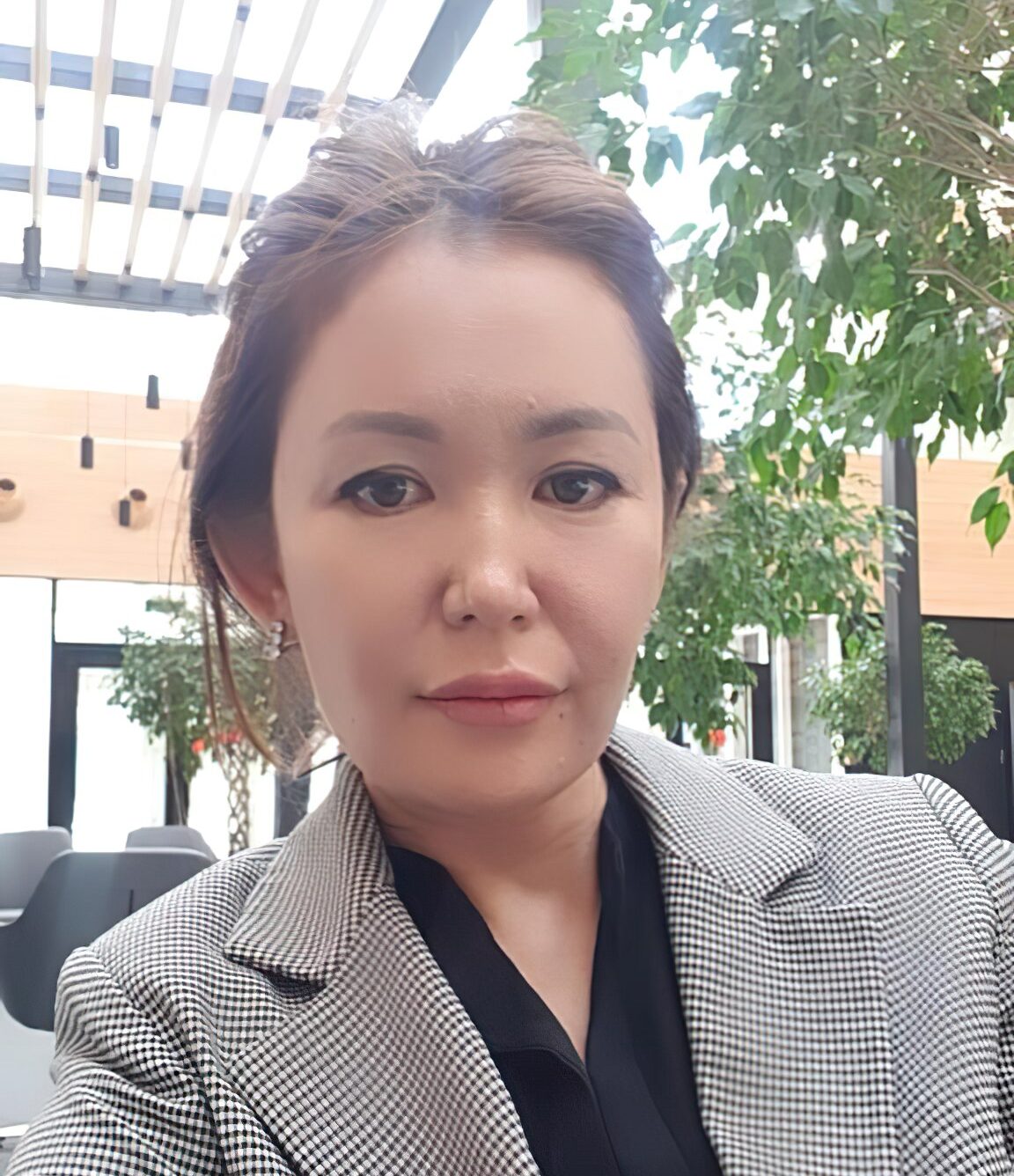
Baktygul Zhunisova is the chief expert of the Human Resources Management Service of the Agency for Strategic Planning and Reforms of the Republic of Kazakhstan, and a Master of the Academy of Public Administration under the President of the Republic of Kazakhstan. She has more than 15 years of experience in public service. Her research interests are related to the development of human resources in the civil service of the Republic of Kazakhstan drawing on lessons from the USA, conducting qualitative analysis, interviews, and quantitative surveys.

Duisenali Alimakyn is a graduate student from Abay Kazakh National University in Almaty. He is a correspondent for the state newspaper in Kazakhstan, and writes articles on literature, culture, and science. He is also a poet and translator, and has published three collections of his poetry. He is a member of the Writers’ Union of Kazakhstan. He is engaged in the study of books written on trips of Western travelers to the Kazakh steppes and Central Asia over the centuries.

Gulnash Askhat, PhD, is Associate Professor, Head of the International Relations Department at Kazakh Ablai Khan University of International Relations and World Languages in Almaty. Her research interests include international migration processes and diaspora studies. In 2014, she conducted research at Brunel University in London (UK). In 2018, she was a visiting scholar at the Geneva School of Diplomacy and International Relations. During her Bolashak residence at GWU she plans to continue her research in the field of diaspora studies, with a focus on the Central Asian diaspora in the US.
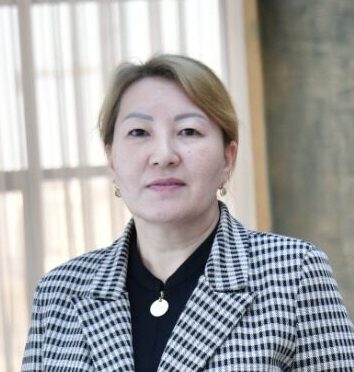
Karlyga Myssayeva is Deputy Dean of the Faculty of Journalism on Scientific and Innovational Service and International Relations at Al-Farabi Kazakh National University. She has been a Fulbright Scholar at Ohio University, a Research Scholar at Oklahoma State University, a Scholar of the Study of the United States Institutes (SUSI) program, and a post-doctorate program (IFEAC) scholar at Strasbourg University in France. Her research focuses on the influence of social media on society in Central Asia, and on the extent to which social media types have progressed in the development of societies, and the measures that should be adopted to enhance the democratic climate. She has contributed to more than 30 scientific articles, including 8 in the Scopus database and 4 in the Web of Science database, and is the author of 4 monographs on new media development and other journalism issues. She has presented her research at international conferences in the US, Canada, Russia, France, Poland, China, and in Central Asia.
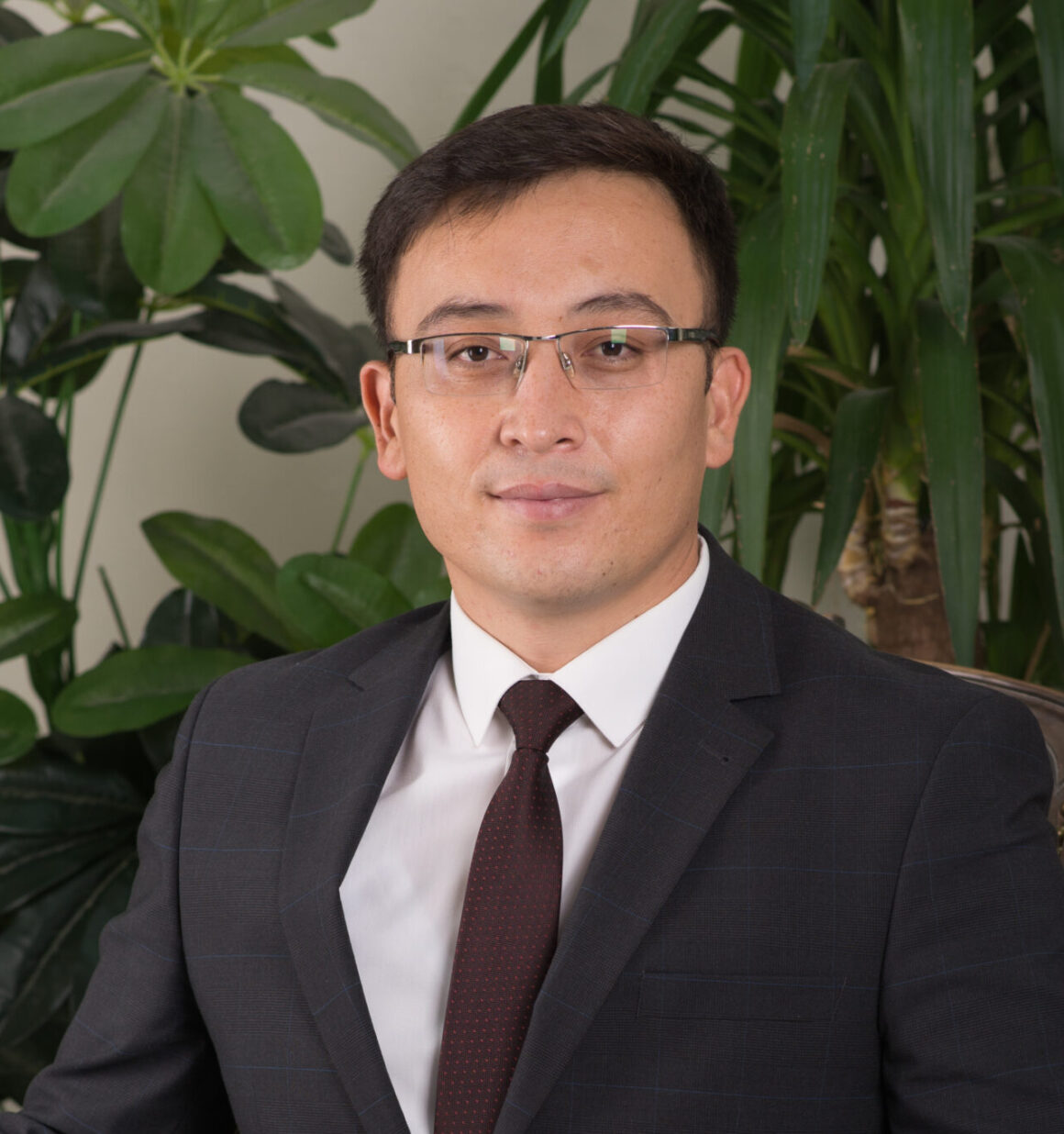
Nurken Aitymbetov, PhD, is a graduate of Al-Farabi Kazakh National University’s Department of Political Science and Political Technology. Since 2012, he has been working as a leading researcher at the Institute for Philosophy, Political Science, and Religious Studies of the Committee on Science at the Ministry of Education and Science of the Republic of Kazakhstan. His research interests include the formation of national identity, nationalism, political culture of Kazakhstani youth, digitalization, and transformation. He has contributed to 20 scientific articles, including 4 in the Scopus database, and is the author of 2 monographs.
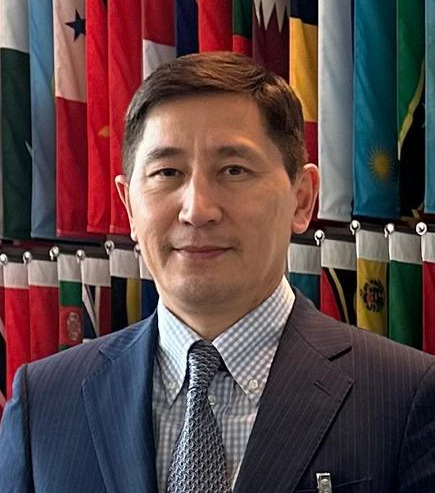
Ruslan Sakeyev is the Representative of the Center for International Programs in the United States of America (“Bolashak”). He has previously held various leadership positions in government, quasi-governmental, and public organizations. During the pandemic, he volunteered and led the Birgemiz Public Foundation, which serves as a crowdfunding platform for charities in Kazakhstan. He has also managed a project for the World Bank focused on the development of professional and technical education in the Republic of Kazakhstan.
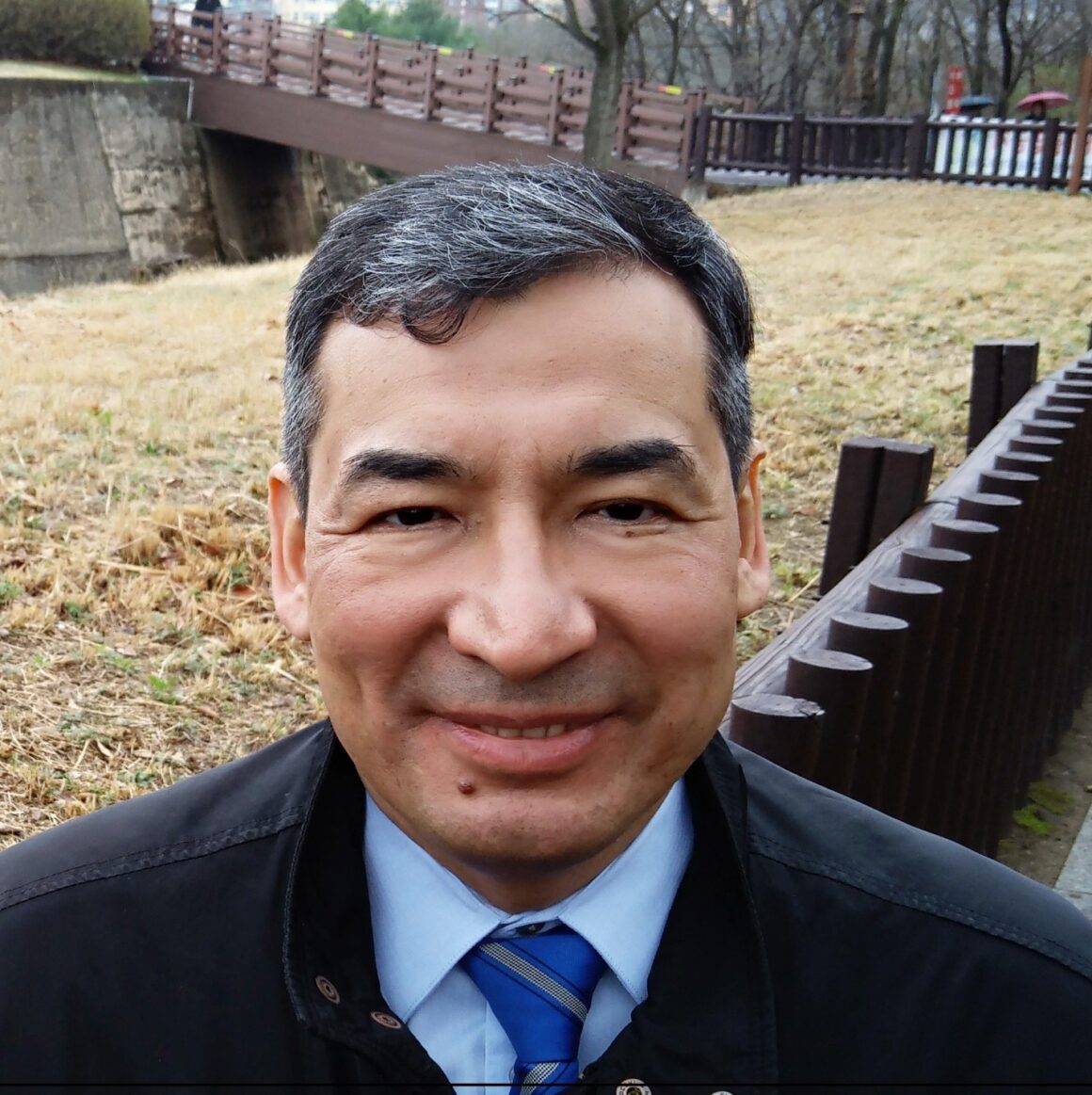
Sanat Kushkumbayev, PhD, is a political scientist and Deputy Director of the Kazakhstan Institute for Strategic Studies (KazISS). He is also an Associate Professor at the L. Gumilev Eurasian National University (ENU). He has more than 25 years of experience in research, teaching, and public service with academic institutions, think tanks, and the Ministry of Foreign Affairs. His research interests relate to the study of foreign policy, international relations, regional cooperation, and security issues in Central Asia.
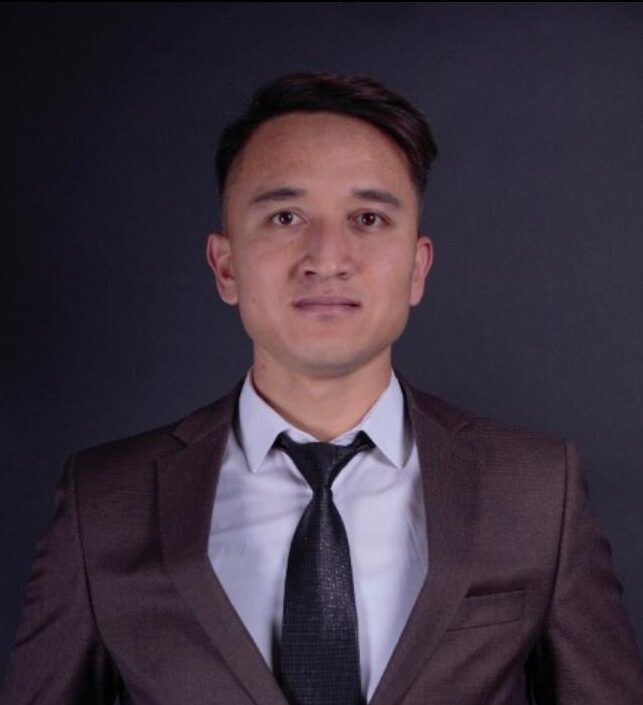
Syrym Parpiyev, PhD, is Senior Lecturer in the Department of International Relations, and a member of the Questioning Regional Affairs Research Center at Al-Farabi Kazakh National University. He graduated from the Chonnam National University (Republic of Korea) with a PhD in International Studies. His main research fields are in nationalism, national identity, nation-building, separatism, ethnic conflict, and state sovereignty. From 2012 to 2019, he participated in several research projects: “Diaspora as an Ethnic Dispersion and an Actor of Global Communication,” “‘Jangbogo Colossus’–Cultivating Global Korean Businessmen,” “BK21 Plus Global Diaspora Creative Talent Team,” “Business Environment for American Investors in Korea” (supported by a grant from the Overseas Korean Foundation), and a “Research Project on the Living Conditions and Policy Demands of Multicultural Families in the Chonnam Region.” As a young scholar, he is the author of more than 15 social science articles.
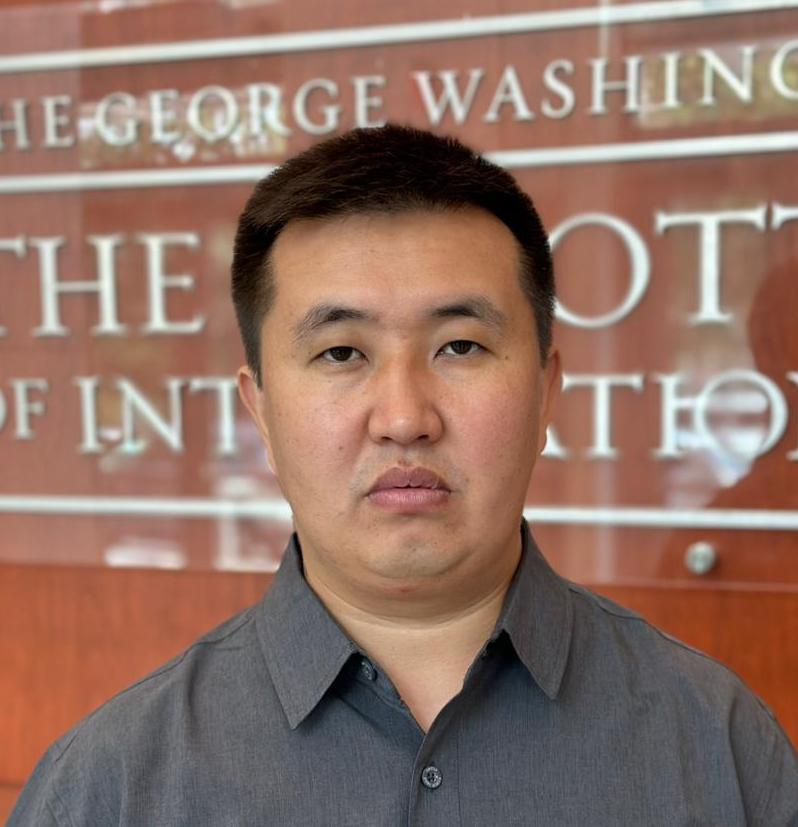
Alibi Skakov has been a mathematics teacher at Nazarbayev Intellectual School (NIS) in Almaty for the past eight years, and currently teaches the 7-12 grades. He is also a team leader in assessing the Cambridge International Exam. Prior to this position, he taught mathematics at Medical College. Alibi holds a Bachelor’s and a Master’s degrees in Natural Sciences from Al Farabi Kazakh National University. His pedagogical activity focuses on the creation of differentiated tasks in order to involve all students in mathematics regardless of their abilities. To accomplish this, he practices the scaffolding technique by breaking up complex tasks into chunks, which provides students with the support they need to achieve lesson objectives. His guide called The Development of Students’ Self-learning Skills using the Tabula Rasa Method further emphasizes the benefits of using the scaffolding technique in teaching mathematics.
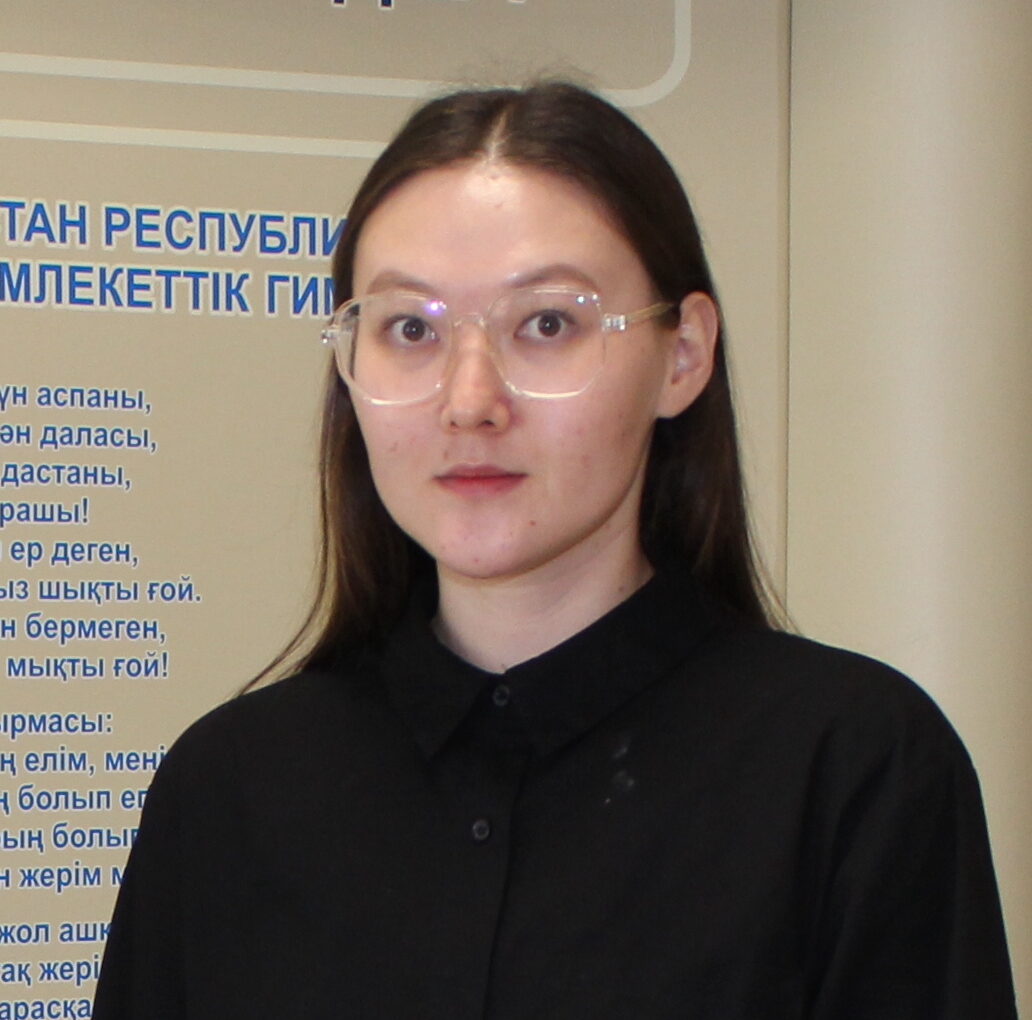
Alima Kurbangaliyeva is a physics/science teacher and Lesson Study coach at the Nazarbayev Intellectual School of Astana and has taught research skills to middle and high school students for eight years. Alima has a Master’s degree in Natural Sciences from the Eurasian National University. The two key directions of her work are scientific and methodological research, i.e. her scientific papers written on the subject of the modified Korteweg-de-Vries equation and methodological works written on the subject of developing students’ research skills have been published in international conferences proceedings such as WALS (World Association of Lesson Study) in Hong Kong (2021) and Kuala Lumpur (2022). Alima has authored a bibliography of research articles and published a book with NISA teachers titled Digital Science at Home (2021).

Ainagul Yermekova is an experienced computer science teacher at a Nazarbayev Intellectual School. She holds a Master’s degree in Natural Sciences and graduated from the Physics and Computer Science Department. She has over 25 years of teaching experience in the school system and is an international trainer in a program for gifted students. Ainagul is also the author of computer science school books for grades 8, 9, and 10 in the Nazarbayev Intellectual Schools system and has more than 30 publications dedicated to developing students’ research skills. In 2021, she participated as a speaker at the Bangkok Conference on Computer Technologies. She has publications in Scopus-indexed journals and holds over 10 intellectual property rights related to mobile applications. She participates in annual pedagogical conferences and strives to create interesting and practical lessons for teaching and developing students.
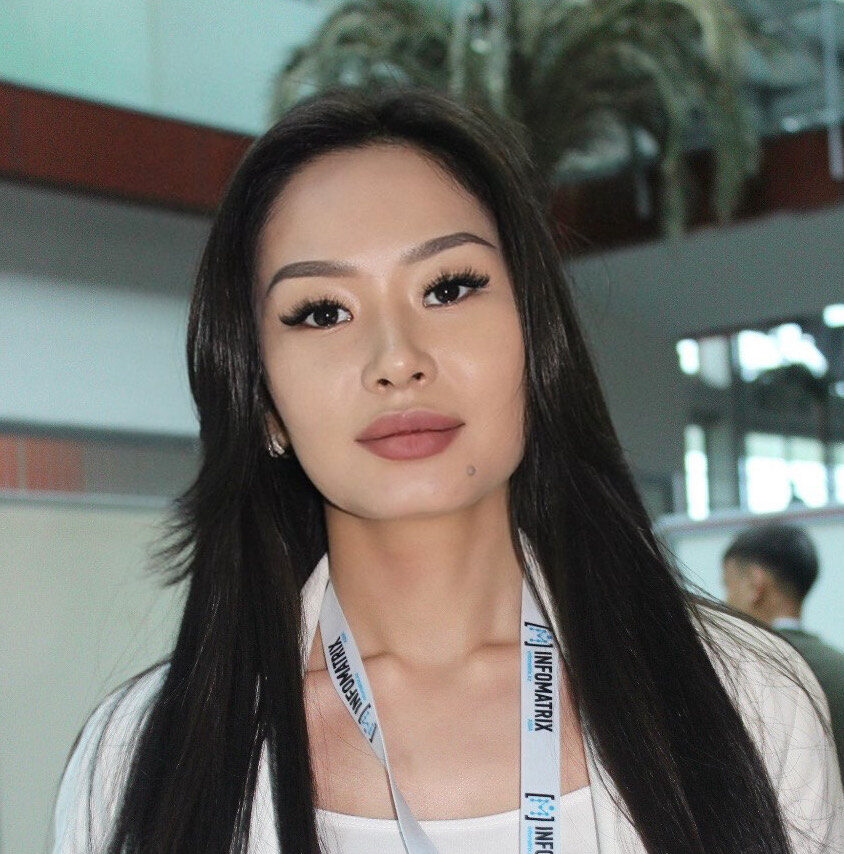
Aizhan Yerzhanova is a teacher and head of the Computer Science Department at the Nazarbayev Intellectual School (NIS) in Astana. While working in the NIS network, Aizhan co-authored an educational program on informatics for grades 11 and 10. She is also a certified robotics trainer and has taught the basics of educational robotics to 62 teachers in Western Kazakhstan. Currently, Aizhan is pursuing a Master’s degree in the computer science department at the Nazarbayev University and is conducting research about robots on Mars. After the completion of her Bolashak Fellowship at the Central Asia Program, where she is trained in the Methodology of Teaching Computer Science in English, Aizhan expects to share her experience with the network of Nazarbayev Intellectual Schools.

Arailym Tuktybayeva has been a mathematics teacher and an olympiad coach at the Nazarbayev Intellectual School of Physics and Mathematics in Taraz for six years. Arailym earned a Bachelor’s degree in Natural Sciences from the Al-Farabi Kazakh National University and then a Master’s degree in the same field in 2017. In 2016, Arailym completed an internship program at the AGH University of Science and Technology (Cracow, Poland), where she took computer vision courses. She participated in the International Conference on Education, Psychology, and Behavioral Science (EPBS-2019) held in Istanbul, Turkey, where she published an article called Using Differentiation in Teaching Integrated STEM Subjects for the Enhancement of Students’ Analytical Skills. Most recently in 2023, Arailym has received several teaching awards including a bronze medal in the International Mathematics, Physics and Computer Science Teachers and Trainers Olympiad and a III degree Diploma from the IX International Creativity Contest for Mathematics Teachers.
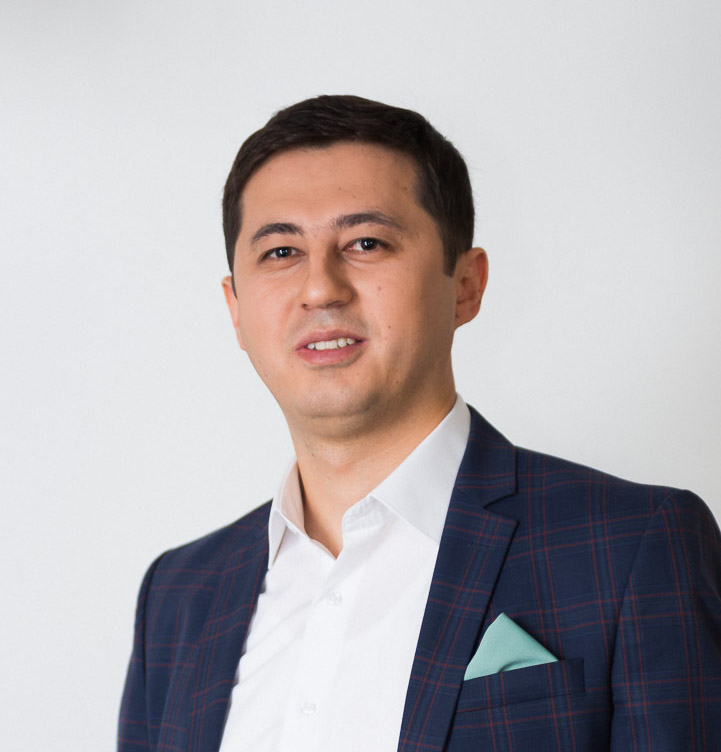
Bakhadir Rismetov holds a PhD cum laude in Chemistry from the University of Indonesia and currently serves as a Vice Principal for Academic Affairs at Shoqan Walikhanov Private School in Almaty, Kazakhstan. He has completed a scientific and research internship in Japan and received training in leadership and education in Indonesia, Hong Kong, Georgia, and Russia. He has been working as a freelance materials reviewer for the University of Cambridge for the past three years. Bakhadir’s research interests include leadership and management in education, STEM, and the implementation of Advanced Placement (AP) programs in non-American schools.

Dana Kassymbayeva is an International Baccalaureate (IB) chemistry teacher with 13 years of experience in the education system of Kazakhstan. She holds a Master’s degree in Natural Sciences and is currently doing research as a PhD student in Chemistry at the Eurasian National University. She is skilled in teaching middle and high school programs, and her teaching style is engaging and interactive. Dana incorporates real-world examples to help students understand complex concepts. She is a published author and has presented several papers on the topic of teaching methodology such as Case Study Approach to Chemistry Lessons (2019) and The Role of Extracurricular Activities in Developing Leadership among High School Students (2021) at various conferences in the field. She is the founder of the NIS Ecoclubs network, in which students hold large-scale republican events dedicated to caring for the environment.
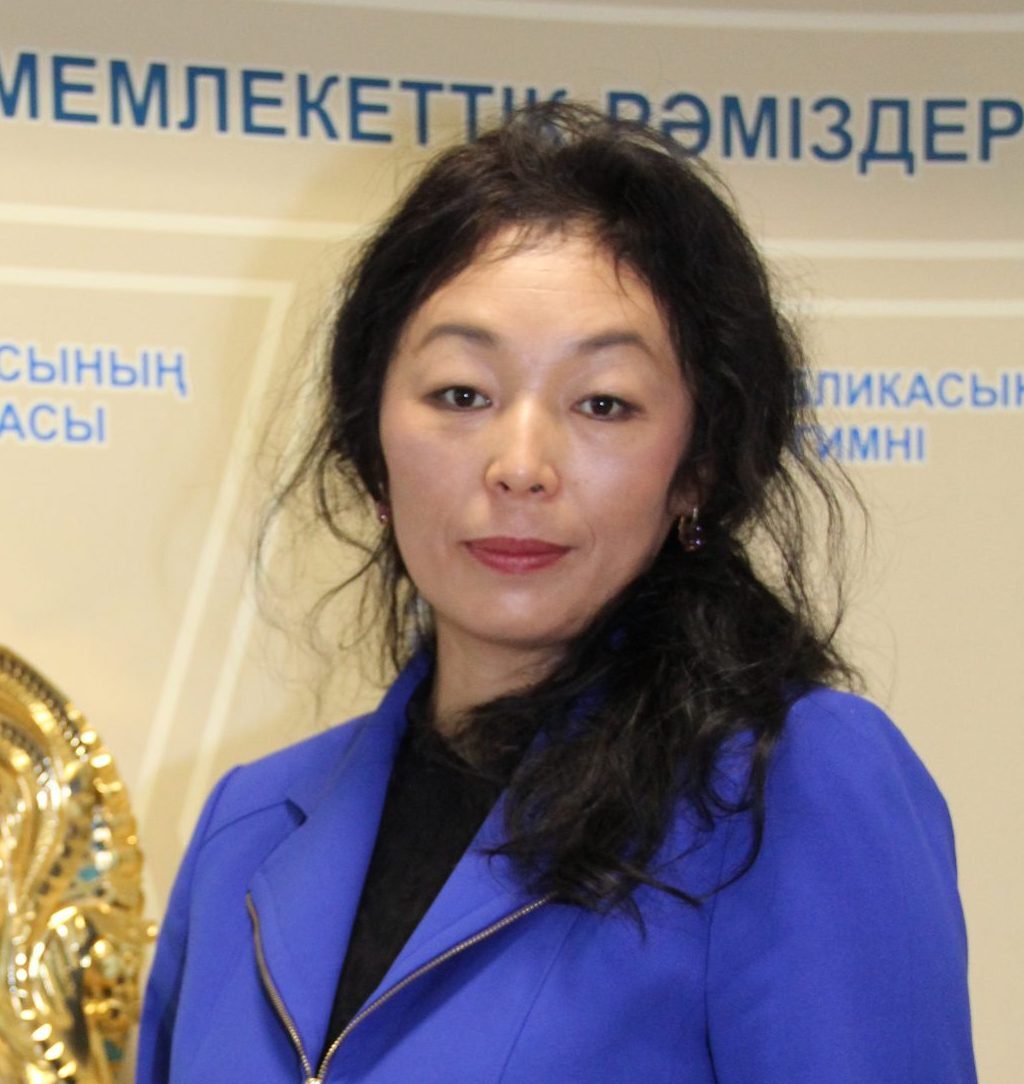
Karlygash Jarbulova is an expert-teacher of mathematics and serves as the education methodologist at the Nazarbayev Intellectual School of Astana, which offers the International Baccalaureate program. Her teaching is grounded in problem and project based learning to develop students’ critical thinking and metacognitive skills. In addition to her teaching, she is active in the domains of Action Research and Lesson Study. She has authored several research articles, which were published in Teacher-researcher, WALS, and KERA Conference Collections. As an education methodologist, Karlygash has created two guidelines for supporting teachers: the manual Project Based Learning in Math Lessons Promotes the Cognitive Activity of Students (2018) and How to Improve Critical Thinking Skills in Math Lessons through Classroom Investigation Works (2022).

Makpal Mukanova has been a teacher of computer science at the Nazarbayev Intellectual School (NIS) of Chemistry and Biology in Almaty for the last eight years and a curriculum developer for NIS and secondary schools in Kazakhstan since 2016. She has developed a number of elective courses and teaching aids and published a collection called STEM Assignments for Students in Grades 6 and 10 with the Center for Educational Programs of the Autonomous Educational Organization NIS (2018). Based on her research, she has been an international speaker at such conferences as Perspektywy Women in Tech Summit; LEGO Education Symposium; and the International Conference about Education and New Technologies EdCrunch. In addition to teaching and developing learning tools, Makpal is a STEM Teacher Award winner and a Certified Inclusive Education Trainer. She is an expert in assessing candidates in the international program Teach For All. Makpal is among the Top30 teachers in Almaty, which is one of the largest cities in Kazakhstan.
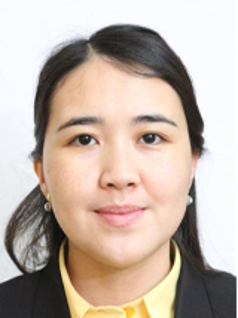
Marzhan Mergenbayeva is a math teacher with eight years of experience at the Nazarbayev Intellectual School of Chemistry and Biology in Almaty. Marzhan graduated from the Al-Farabi Kazakh National University, Department of Mechanics and Mathematics with the specialty in Mathematical and Computer Modelling. While she was an undergraduate student, she was an exchange student at Keele University, UK, where she studied mathematics for one semester. As a teacher, her main goal is to interest students in a complex subject such as mathematics. In 2017-2018, she worked with the methodologists of the school, where she studied and developed teaching methods and conducted research on the effectiveness of the educational process. During the COVID-19 pandemic she conducted research entitled Increasing the Activity of Students by Organizing Group Work using the Microsoft Teams Platform. From 2016 to 2020, she completed the following training courses and conferences: Probability Theory, Formative Assessment, and Action Research.

Meruyert Shagimoldina is an experienced biology teacher, Extended Essay supervisor, CAS advisor, and International Baccalaureate examiner. Driven by the love of her work she takes pride in providing lessons to young generations. As a biology teacher, her goals include improving teaching methods in the country and making biology more active and enjoyable for K-12 students. In addition to her primary job, Meruyert has been recognized as an author of a biology curriculum for grades 7, 8, 9, and 10 at the Nazarbayev Intellectual School of Astana and the International School of Astana.
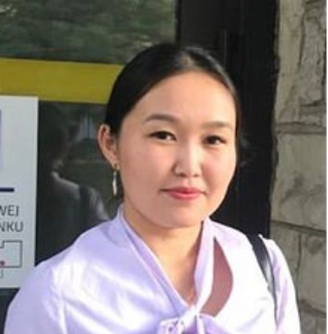
Moldir Akhmetbekova is a teacher of computer science. Moldir received a Bachelor’s degree in Computer Science from the Eurasian National University and gained a Master’s degree in the same speciality. She taught at a Nazarbayev Intellectual School and motivated her students with her achievements. Later Moldir pursued a PhD degree and learned about methods for teaching computer science. Moldir completed an internship at Istanbul Technical University in Turkey in 2014 and worked as a researcher at the Lublin Technical University in Poland. The results of this research were published in the journal Global Science and Innovations 2019: Central Asia. Moldir currently leads her own school center providing 120 rural school children a free computer science course.

Nurzhigit Botabekov is an accomplished physics teacher who has taught at a Nazarbayev Intellectual School of Physics and Mathematics since 2014. He earned his Bachelor’s degree in Pedagogical Physics from the South Kazakhstan University in 2014. In 2022, he completed his Master’s degree at the State Pedagogical University, where he conducted research on bilingualism and successfully defended his thesis. Various scientific journals have published his research articles, including CLIL Methods as a Means of Improving the Language Skills of Students in Physics (2021) and CLIL and Active Learning Methods (2021). Nurzhigit’s current research interests include the impact of artificial intelligence on student performance and the learning process. He is committed to pursuing further research in this area to enhance the teaching practices at his institution and contribute to the field of education.
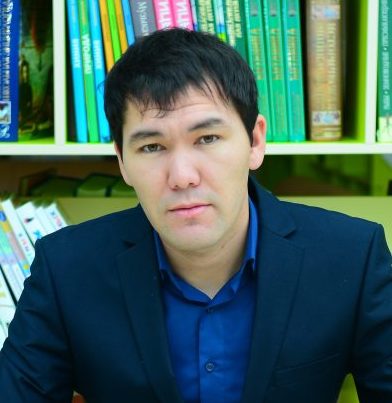
Nursultan Yembergenov is a computer science teacher at a Nazarbayev Intellectual School with over 10 years of teaching experience. He earned his Bachelor’s degree in Computer Science from the Kazakh British Technical University and his Master’s degree in Education from the University of KazIITU. He worked as a software developer for several years before transitioning into teaching. Nursultan is passionate about sharing his knowledge with his students and taught computer science at the high school and college levels. Nursultan’s teaching style is student-centered, focusing on practical applications of computer science concepts and hands-on programming experience. He is well-versed in a variety of programming languages, including Java, Python, and C++, and is always eager to learn new ones. Nursultan is involved in the development of computer science curricula and presented at several educational conferences on the topic. He believes that computer science is an important subject for students to learn as it teaches critical thinking skills and prepares them for a rapidly advancing technological world.

Ryszhan Zhairbayeva is a biology teacher at a school in Astana that provides in-depth instruction in math, physics, information technologies, chemistry, and biology. In her 30 years of pedagogical experience, Ryszhan has worked with many talented students and prepared them for success in subject Olympiads. Her students won republican contests in Kazakhstan and international Olympiads in Iran in 2018 and in Colombia in 2022. In order to share her pedagogical experience, in 2018 she developed a manual called Workshop for a Biology Teacher and participated in an international conference on Lesson Study, which was held in Beijing. In 2021, Ryszhan created an author’s program for STEM education. In 2019, she created an agricultural cultivation club for seventh-graders with the aim of teaching students to plant, grow, and harvest crops. This club represents the research work she guided her students to arrange at the Nature Museum, where viewers could see some stages of flora and fauna development.

Sandugash Kazybekova is a chemistry teacher at the Nazarbayev Intellectual School in Almaty with eight years experience teaching advanced chemistry to 11th and 12th grade students and the General Certificate of Secondary Education program to 9th and 10th grade students. Prior to her work at NIS, she was a junior scientist at the Institute of Plant Biology and Biotechnology and was responsible for the chemical experiment component of project work. Since chemistry is taught in English at NIS schools, Sandugash’s pedagogical development goal is centered on the Content Integrated Language Learning (CLIL) methodology. She completed a CLIL Trainer course from the British Study Centre, where the focus was on the English language for classroom management and instruction, within the CLIL frameworks. One of her current articles, Teachers’ Experiences in Implementing CLIL Strategies in Chemistry Lessons published in the Journal of NIS XIII International Research-to-practice Conference, showed the main challenges faced by local chemistry teachers in using CLIL technologies.

Yerassyl Tleudin has been a computer science teacher at a Nazarbayev Intellectual School in Ust-Kamenogorsk, Kazakhstan, since 2017. He also teaches robotics and programming there. Yerassyl continues to pursue his education and in 2018 he received a degree in Secondary Higher Education with a specialization in two foreign languages: English and German. In 2022, he received a Master’s degree in Computer Science and Software from East Kazakhstan Technical University and a Master’s degree in Informatics and Computer Engineering in MEPHI, Moscow. During his training, Yerassyl wrote several scientific articles, including Fast R-CNN Object Recognition Algorithm (2022), which discusses scientific achievements in terms of object recognition algorithms.

Temirlan Otepov is a second year PhD student at the International Information Technology University in Almaty, Kazakhstan, where he is researching the field of machine learning with a focus on predicting the final scores of students during online and offline education. He received his Master’s degree from the same university in 2020. In 2019, Temirlan earned an International Business Machines Data Science certificate from Coursera, and he has published two articles in the field of machine learning. The first article, Approximate Solution of the Heat Equation Using Neural Networks was published in the conference proceedings Young Researcher: Challenges and Prospects in 2020. His second article, Autonomous Car: Levels of Driving Automation. How Does Automation Work?, was published in the journal Student Bulletin the same year. Temirlan began his teaching career at a Nazarbayev Intellectual School in Almaty, prior to which he worked as a programmer. His research interests include machine learning, data science, and artificial intelligence.
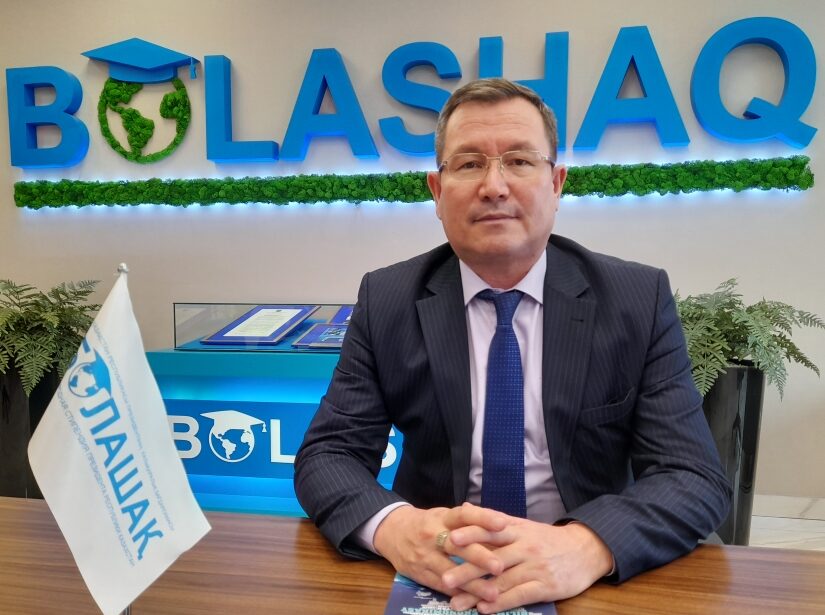
Abaibek Zhunisov is Associate Professor at Korkyt Ata Kyzylorda University. He is head of scientific projects in the field of agriculture. His main lines of scientific research are in the ecology of agriculture. He has been the recipient of honorary degrees from several public academies of Kazakhstan, and is the author of including 5 textbooks and 35 scientific papers. He has participated in international projects at Japan, South Korea, Germany, and Austria universities.
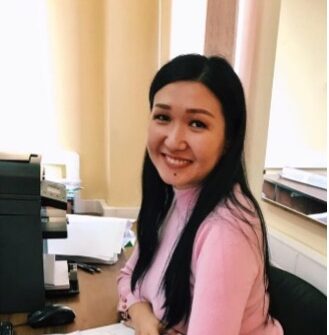
Aigul Amrenova holds a Master of Technical Sciences and serves as Deputy Director of the Institute of Heat Power Engineering and Control Systems at Almaty University of Power Engineering and Telecommunications. Her research interests include managing education, environmental issues, heat power engineering, and the use and development of renewable energy in the Republic of Kazakhstan. She has contributed to 20 scientific articles and is the author of 2 monographs, 2 educational teaching aids, and the holder of 2 patents.

Aigul Yessentemirova holds J.D. and is Deputy Director of the Agency for Recognition and Quality Assurance. She is also an Advisor to the President of Alikhan Bokeikhan University. She has more than 5 years’ experience in the civil service with the Department of Higher Education in the Ministry of Education and Science. Her research interests relate to the study and development of the system of quality assurance in higher education.

Altynay Omirzakova is a senior lecturer in Marketing as well as an international relations coordinator of the Suleyman Demirel University Business School. She graduated with an MA in Corporate Communications, Marketing, and Public Relations from the University of Leeds (UK). Since 2018, she has been teaching marketing courses with real-world applications and helping students to develop their own small-scale enterprises and business strategies.
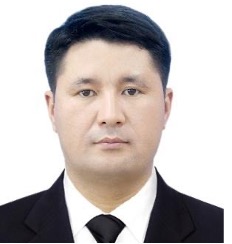
Ardak Montayev graduated from the Russian Saratov State University with a degree in Economic Sociology and Demography. His main research areas are in economic sociology, demography, and youth sociology. In 2019, he participated in the One Belt, One Road international project of the Shanghai Cooperation Organization, working for one year as a researcher at the Center for Central Asian Studies at Dalian University of Foreign Studies in China. Also, as a young scientist, he is the author of more than 25 scientific and educational works, 2 textbooks, and 2 scientific articles in Scopus. Ardak has also received a letter of thanks from the first President of Kazakhstan, Nursultan Nazarbayev, for his contribution to the social and political life of the country.
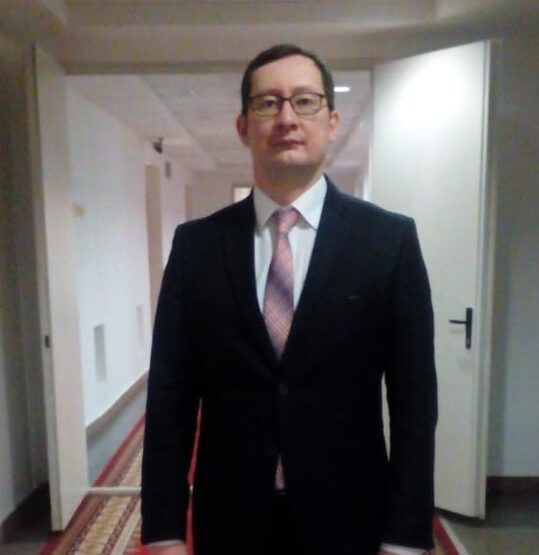
Arman Nurmaganbetov is the Head of Internal Administration for the Department of State Fund of Social Insurance of the Republic of Kazakhstan. His scientific interests lie in improving state development in issues related to small and medium-sized enterprise (SME) development. His PhD dissertation focused on an institutional approach to state support for SME development, and his prospective research will include a consideration of formal and informal institutes of business support. His previous research addressed financial and non-financial instruments of SME state support, including consulting on how to register a firm.
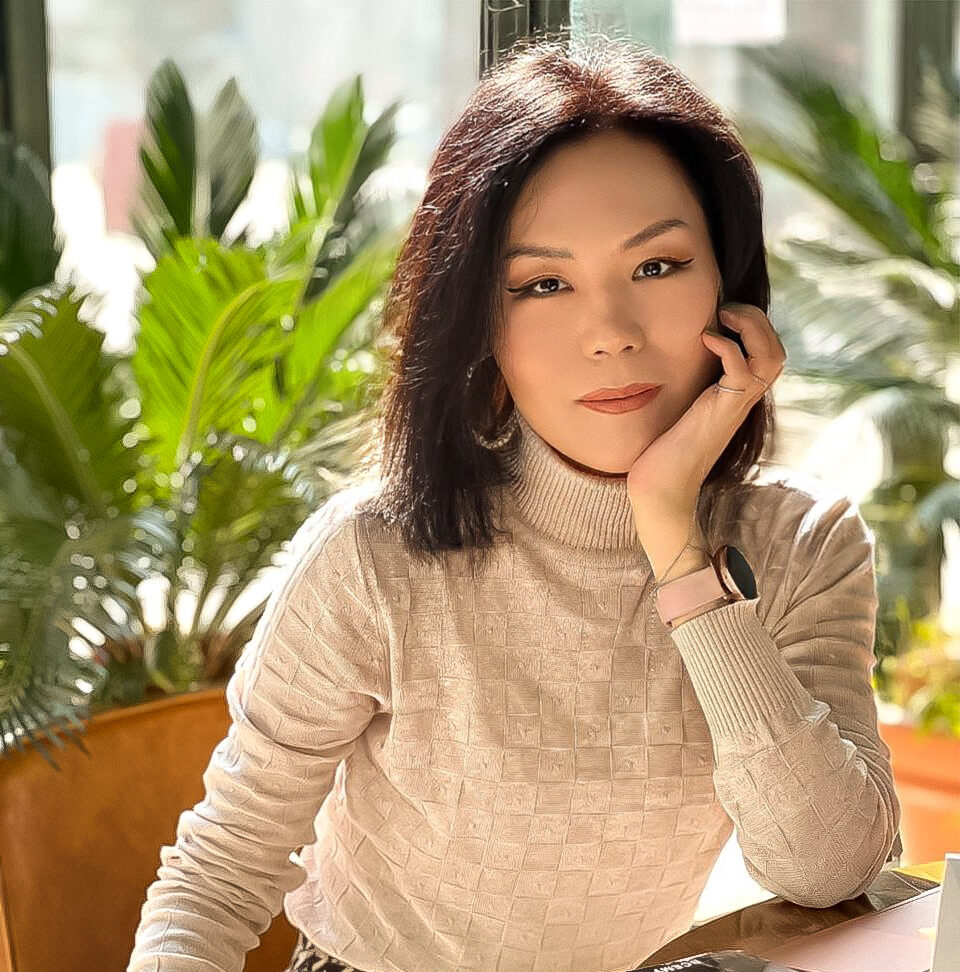
Assem Tanzharikova holds Bachelor’s and Master’s degrees in Accounting, and a PhD in Economics. She has been a university lecturer for 11 years and works at the Scientific and Educational Department of Accounting and Audit at Narxoz University. She teaches several courses on management accounting, taxation, and financial accounting. Her acadmic interests are in accounting for business performance management and advanced management accounting. She has over 43 publications, including 2 monographs.
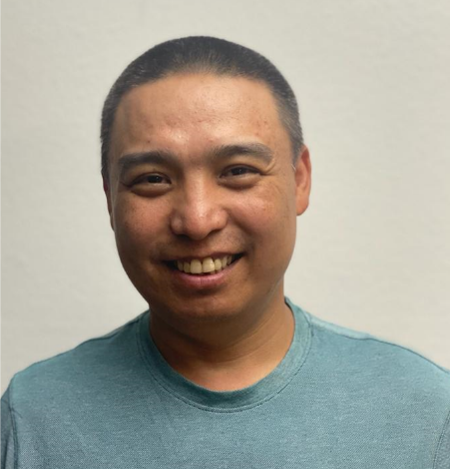
Bauyrzhan Kobadilov received his Master’s of Science in Project Management from Stirling University in Scotland, and holds a PhD degree in Finance from the University of International Business in Kazakhstan. His research interest is in the capital structure of business organizations. In 2012, he became a lecturer in finance at Suleyman Demirel College in Kazakhstan. Since 2014, he has worked as a senior lecturer, teaching financial management and accounting at the International University of Information Technology. He is the author of several research articles on financial technologies in banking.

Bibigul Aidarkhanova holds a PhD in Economics. Previously, she served at the Economic Research Institute under the Ministry of National Economy as Deputy Director of the Center for Macroeconomic and Applied Economic and Mathematical Research, working with the Eurasian Economic Commission and other international organizations in the field of macroeconomic modeling and forecasting. Since 2017, she has been working as a professor at the Kazakh University of Economics. Her research focused on studying the macroeconomic development of Kazakhstan, including the factors and structure of economic growth, with a comparative analysis of the economic development of other Central Asian countries.

Botagoz Kerimbayeva, PhD, is Associate Professor of Foreign Philology and Translation Studies at Zhubanov University. She was the winner of the state scientific scholarship by order of the Minister of Education and Science of the Republic of Kazakhstan. Her research interests include education management, leadership in higher education, and the digitalization of education. She has contributed to 50 scientific articles, including 7 in the Scopus database, and is the author of 2 monographs, 2 educational teaching aids.

Dina Bakranova received her PhD in Physics with a dissertation on nanotechnology and nano-materials in 2017. She is Deputy Head of the Center of Alternative Energy and Nanotechnologies, and Assistant Professor at Kazakh-British Technical University. She was selected as the winner of the Best Report by Young Scientists at the 4th International Conference on Nano-materials and Advanced Energy Storage Systems (INESS) in 2016, and received the state scientific scholarship for talented young scientists in 2020. Her fields of interest are in semiconductors, solar cells technology, and the structure of thin films.

Elmira Assan graduated from the University of Sheffield (UK) and holds a Master’s degree in International Studies. Since 2005 started duties as a civil servant in the Ministry of Science and Higher Education of the Republic of Kazakhstan. Since 2015 she has worked as the Head of Division of International Treaties and Legislation of the Ministry’s International Cooperation Department.

Gaini Mukhanova holds a PhD in Economics and is Associate Professor and Vice Rector for Science and International Relationships at the Kazakh Academy of Labor and Social Relations in Almaty. Her research interests include education management, implementation of inclusive education models in Kazakhstan and Central Asia, effective cooperation with employers, and fundraising. She has participated in the preparation of 120 scientific articles and authored 3 monographs and 3 textbooks.
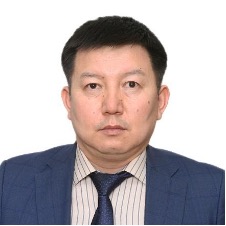
Galym Teleuyev, PhD, is Dean of the Law faculty of the International Educational Corporation. He was named Best University Teacher for 2021. His research interests include education management, environmental law, land law, and legal aspects of using and developing renewable energy in the Kazakhstan and foreign countries. He has contributed to 50 scientific articles, including 13 in the Scopus database and 1 in the Web of Science database, and is the author of 4 monographs on legal issues in agrarian cooperation and other environmental issues.
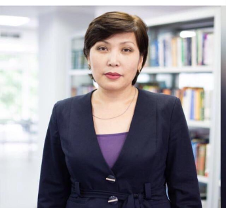
Gulashar Doskeyeva is Professor or Economics at Narxoz University, one of the leading economics schools in Kazakhstan. Her research is related to the economic problems of the social sphere. She has published more than 120 papers devoted to financing issues and resource management in such sectors of the social sphere as healthcare, education, and employment. She has published 5 textbooks and 2 monographs, and was named Best University Teacher for 2015 by the Ministry of Education and Science.

Gulden Manarbek is Head of the Department for Accreditation and Licensing of Educational Programs at Al-Farabi Kazakh National University in Almaty. She is an expert in the field of quality management in higher education and she has extensive experience in institutional and program accreditation at the university level. She studied at Tsukuba University in Japan as an exchange student and was a visiting scholar at the Dresden University of Applied Sciences in Germany. She holds a PhD in Innovation management. Her research relates to issues of quality management and quality assurance as well as the adoption of business quality management tools in the field of higher education.

Inna Axyonova holds a Master’s degree in biology and is an expert teacher at Nazarbayev Intellectual School. She has completed a professional development internship in England and Singapore. She is an internationally-certified STEM education trainer, being named Best Teacher of the Republic of Kazakhstan in 2019 and won the international competition “Innovative information and pedagogical technologies in the IT education system.” She is the author of 3 biology textbooks and is a member of the Kazakhstan Educational Research Association. She has conducted research on the role of Problem Based Learning in developing students’ self-regulation skills. She has produced some 20 scientific publications and has presented research results international conferences.
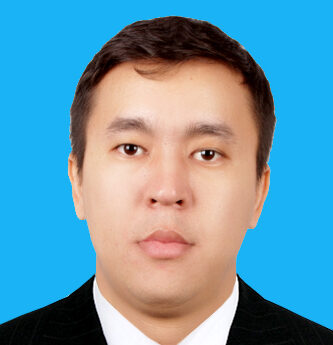
Lesbek Taizhanov holds a PhD in Economics and is Associate Professor at the International Kazakh-Turkish University. His academic areas of interest include the socio-economic development of Kazakhstan and foreign direct investment in Kazakhstan. He has contributed to 40 academic articles, including 3 in the Scopus database and 20 highly-cited international journals, and is the author of a monograph on the social and economic development of company towns in Kazakhstan.

Mirey Nurgaliyeva Associate Professor of Economics Department at the Kazakh Auto Road Institute in Almaty, where she teaches sophomore- and junior-level courses in management, and she combines her academic career with one in business. As financial director and a stakeholder of the institute, she plays a great role in its development, which experience she draws upon to provide valuable perspectives for her students. Mirey maintains an active research agenda that examines academic faculty in post-Soviet economies transitioning to international standards, along with transitional economies’ changes in academic organizational structure. She holds an MBA from KIMEP University in Almaty.
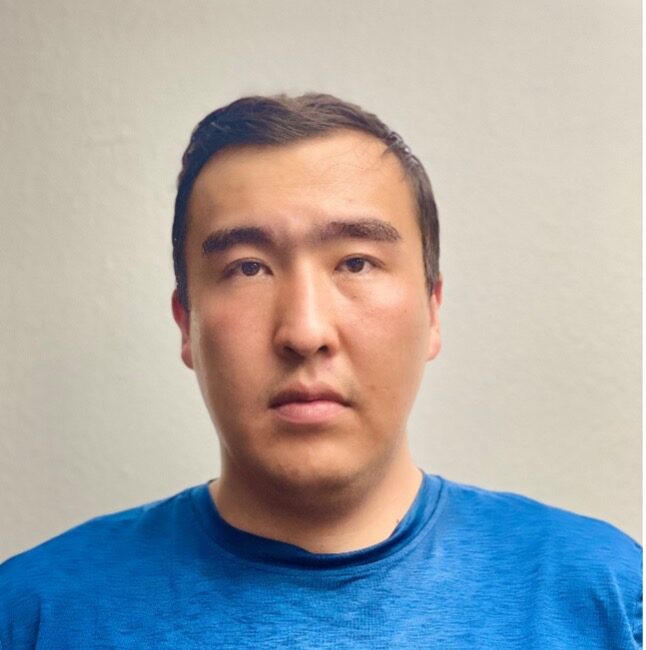
Olzhas KenzhaliYev graduated from the Kazakh National University Business School in 2011, and is currently pursuing a PhD in Project Management at Satbayev University. Since 2012, he had been working in the Department of Science and Innovations of Kazakh-British Technical University. His main objects were accelerating and attracting funds to incubated projects at KBTU, commercializing R&D projects by selling intellectual properties, or creating start-ups. His main activities include the commercialization of knowledge-intensive software that has been developed by KBTU scientists for oil companies, fundraising to support the university’s research, and contributing to creating new products.
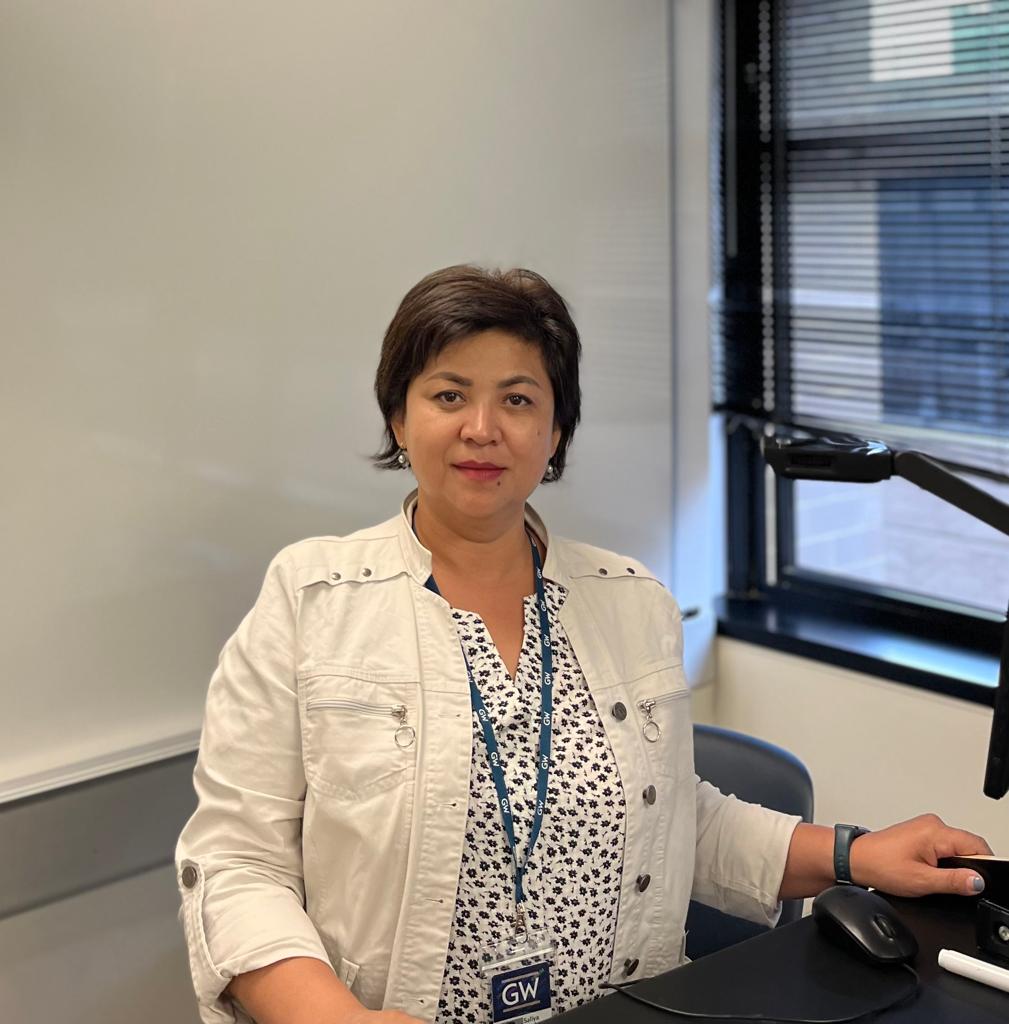
Saliya Tuktubayeva is a teacher-moderator of the Nazarbayev Intellectual School in Kostanay. She has been working in the field of education since 1992. Saliya is part of the leader teachers community of Kostanay and she collaborates with the National Testing Center as a member and expert of the Appeals Commission. She is also the author of 3 methodological manuals for teachers on formatted evaluation and the developer of an electronic test prep manual for students. Moreover, she is a participant of the Online School project. Her area of research interest is the influence of online tools on the motivation of strong and weak students as well as developing recommendations for their future applications in educational practice.

Ugur Choban holds a PhD in Management from the National University of Malaysia and is Assistant Professor and Research Coordinator of the Suleyman Demirel University Business School. He has over 25 years of experience in the education sector. His research interests are in entrepreneurship, social capital, and institutional theory, and his research skills are in conducting interviews and quantitative surveys.

Zhanna Yessinbayeva is head of the Department of Formation of the State Educational Order of the Department of Higher and Postgraduate Education of the Ministry of Education and Science. In this role, she is responsible for regulating the financing of higher and postgraduate education. She also oversees policies related to university admissions and the admission of foreign citizens, including ethnic Kazakhs on scholarship. She oversees issues related to educational finance, and planning the volume of the state educational offering in accordance with the demand for personnel in the labor market.
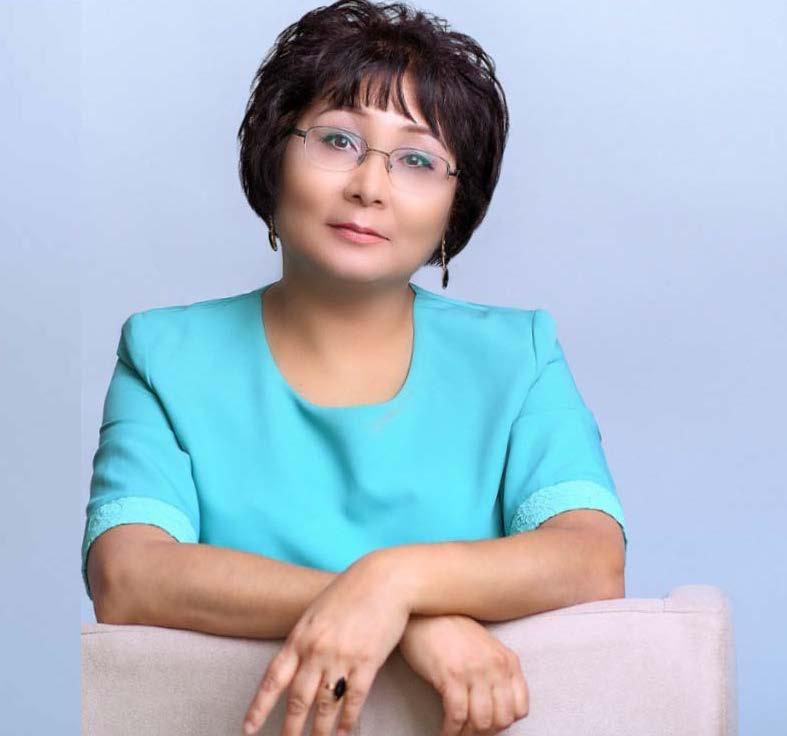
Aida Baibotanova works at a kindergarten system in Nur-Sultan, Kazakhstan. Her research will be devoted to studying the further development of the system of preschool education and training, taking into account and in accordance with best word practice and ensuring equal access to quality education for preschool children. She is also devoted to the study of early childhood development.
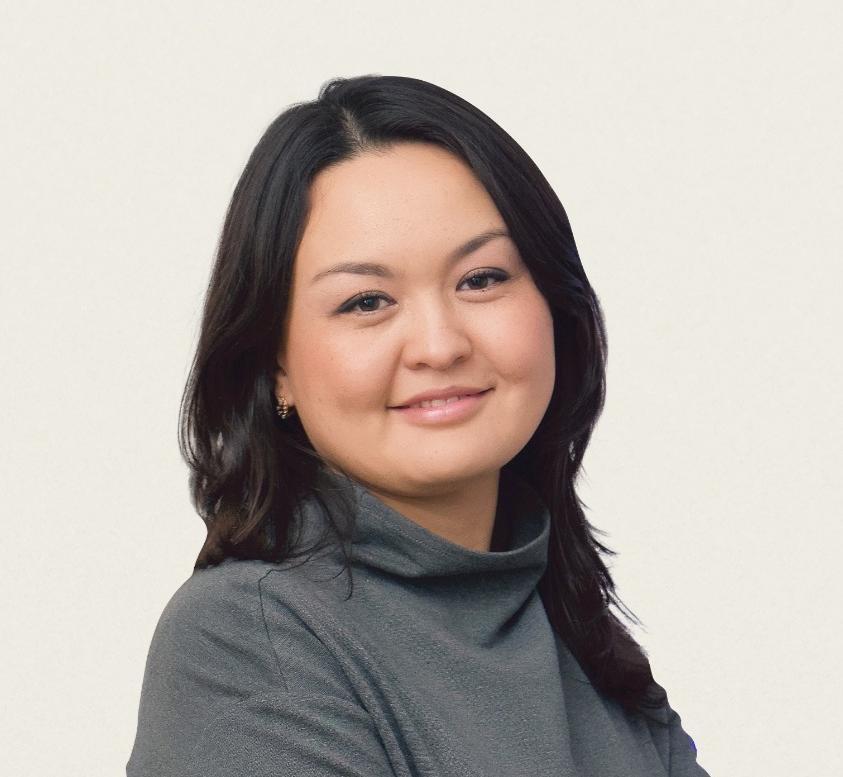
Aigul Sarenova serves as the Dean of General Education at Satbayev University, the first and the leading technical research university in Kazakhstan. Over the last few years, she has been dealing with first-year students’ adaptation challenges as the basis for promoting their personal and professional development in a technical university. Her research at CAP will explore academic freedom as a core value in higher education.
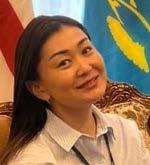
Ainur Seilkhan is a graduate student from Abay Kazakh National Pedagogical University (Almaty, Kazakhstan). The topic of her research is environmental education and culture in the Republic of Kazakhstan and higher education institutions. She is an expert on environmental protection and regional environmental issues. She currently manages a project called “Green University” and is working on its implementation in the educational process.

Almaz Kungozhin, PhD in Mathematics, serves as principal of the National School of Physics and Mathematics in Almaty, Kazakhstan. He is participating in the Leadership in Higher Education Management Program through the 2022 Bolashak International Scholarship. At IERES he is studying the American secondary and higher education systems, as well as ways to internationalize Kazakhstan’s schools’ college preparatory programs through use of Advanced Placement (AP) programs.
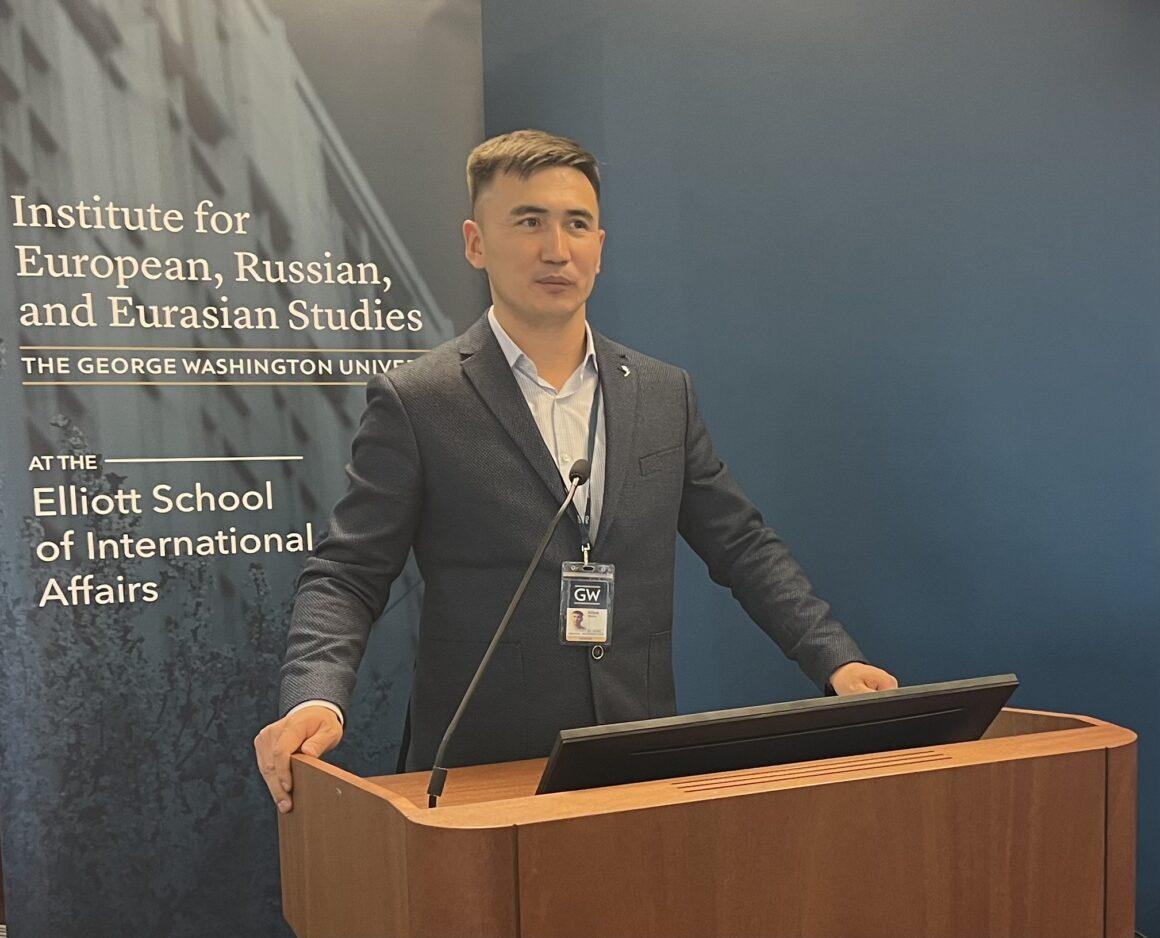
Alibek Ydyrys, PhD, is a member of the Presidential Youth Personnel Reserve of Kazakhstan, which is a center for talented youth, and Director of the Biomedical Research Centre at Al-Farabi Kazakh National University of Kazakhstan. He has served as an expert on many state commissions, and is a compiler of a test on methods for teaching biology for master’s degree applicants. His research interests include science education administration, the integration of science and education, biomedicine and biodiversity conservation.

Arslan Ivashov is the head of the Distance Learning Department, and assistant professor in the Department of Humanities at Almaty University of Power Engineering and Telecommunications. He defended his thesis on the socio-cultural analysis of Kazakhstan’s education system and received his candidate diploma of philosophical sciences from the Academy of Science of the Republic of Kazakhstan. Arslan will be conducting research on a comparative analysis of how covid-19 boosted online education in Central Asia and in the United States within the Central Asian Program.

Askar Beder is a computer science teacher at the Nazarbayev School of Theoretical Physics and Mathematics in Aktobe, Kazakhstan. Research area of interest: project-based learning, problem-solving in secondary schools in Kazakhstan.

Daniyar Kaldiyarov serves as Chief of Staff to the Chairman of the Board and Rector of Zhetysu University in Taldykorgan, Kazakhstan. A professor of economics, he has been working in the higher education system since 1985. His research at CAP will be devoted to the study of modern trends in the development of higher education in the context of focusing on the rankings of higher education institutions.

Dina Sabirova graduated from Kazakh State Women’s Pedagogical University in 2005 with a degree in Russian Language and Literature, where in 2007 she completed her master’s degree in Philology. She received her PhD in 2016 from Abai Kazakh National Pedagogical University. Dina was awarded the jubilee medal commemorating 25 years of the Assembly of the People of Kazakhstan. She was the winner of the state scientific scholarship “For young scientists,” for 2017 and named Best University Teacher in all Kazakhstan in 2021.
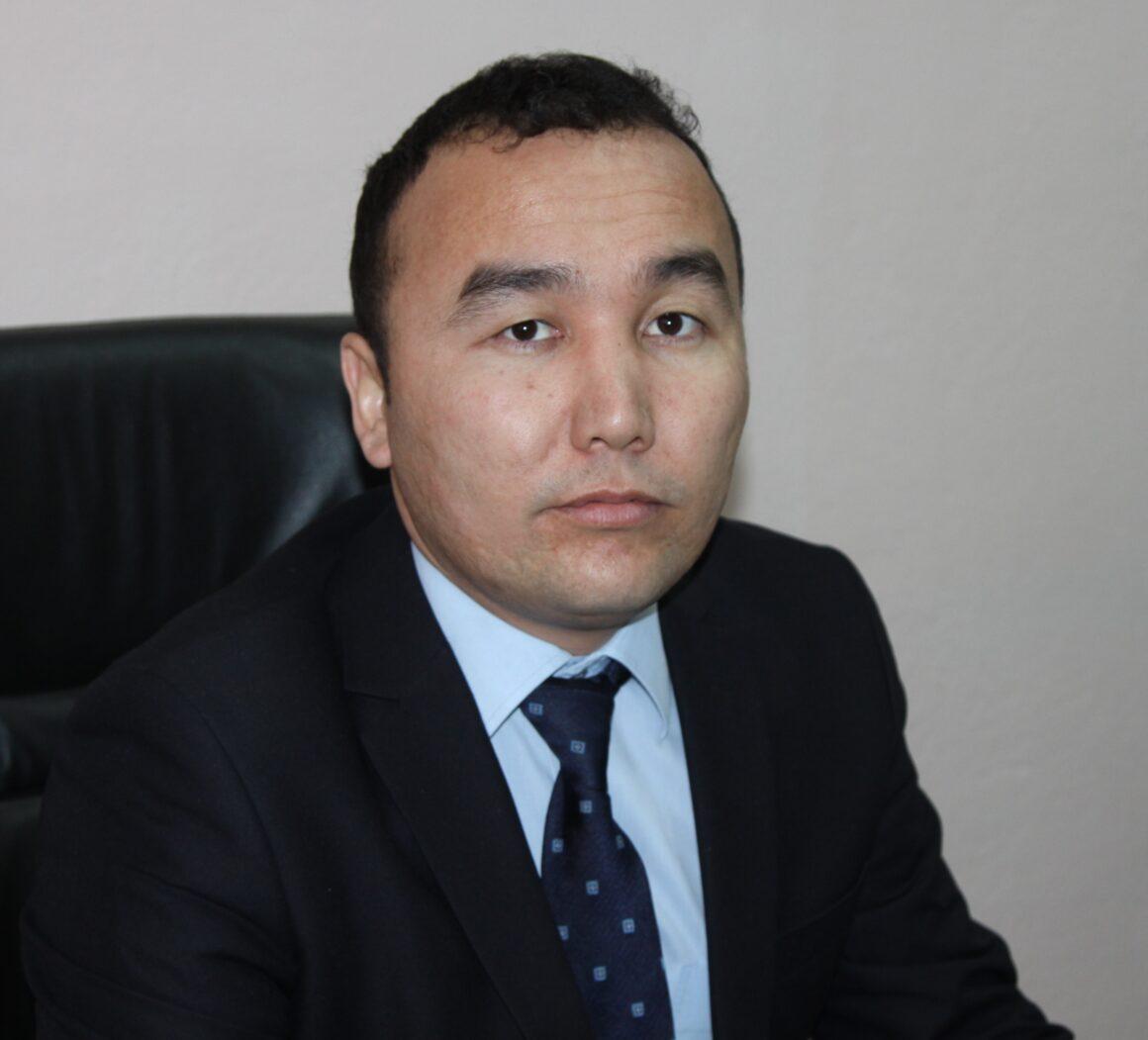
Dinmukhamed Kelesbayev is Dean of the Faculty Economics, Management, and Law and Associate Professor of Economics in the Department of Management and Tourism of Khoja Akhmet Yassawi International Kazakh-Turkish University in Kazakhstan. He holds a PhD in Business Administration from Gazi University in Turkey. His research interests include the quality of higher education, quality metrics, customer types in higher education and their classification, the needs of higher education customers, and strategies of higher education management.

Gaini Seitenova is the Head of the Mechanics and Oil and Gas Department at Toraighyrov University (Kazakhstan). She has a PhD in Chemistry and is a professor and postdoctoral researcher at the National Research Tomsk Polytechnic University (Russia). She holds a bachelor’s degree in law, and has completed internships program in Germany, Hong Kong, and Poland. She has engaged in international research projects in the field of petrochemistry and oil refining. Her area of study in the program will be devoted to the role of science in higher education.
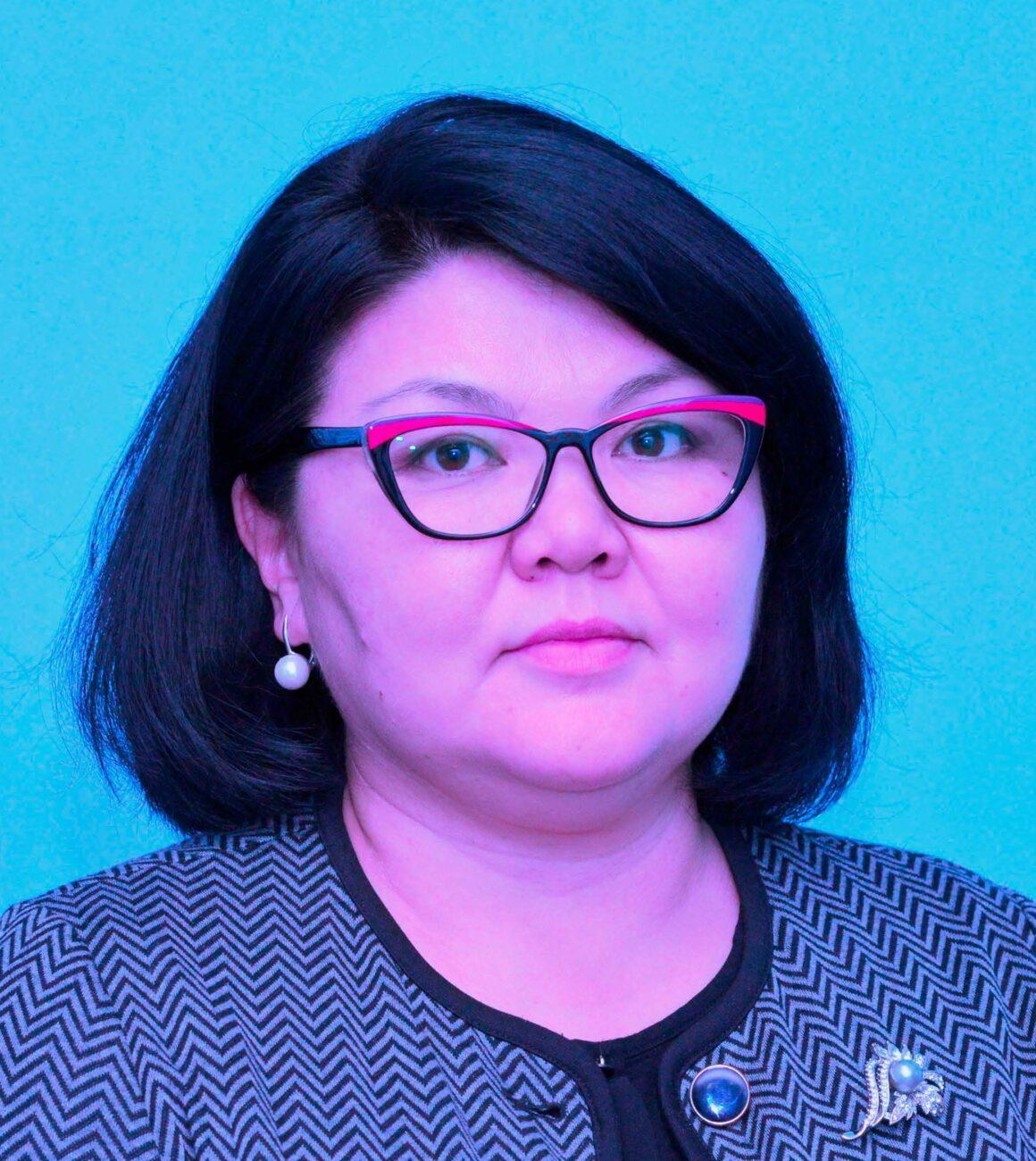
Kazyna Bekbenbetova is Director of the Department of Educational, Social Work, and Youth Policy at Kazakh National Pedagogical University, and has over 20 years of experience in education. She has a master’s degree in pedagogy and completed her doctoral studies specializing in Kazakh Language and Literature. She has contributed to 40 scientific articles, including 2 in the Scopus database and 1 in the WOS database, and is the author of 4 curricular guidelines on social development and youth policies in use at Abai University. Her research at CAP is focused on the creation of a gender inclusive program in Kazakhstan.
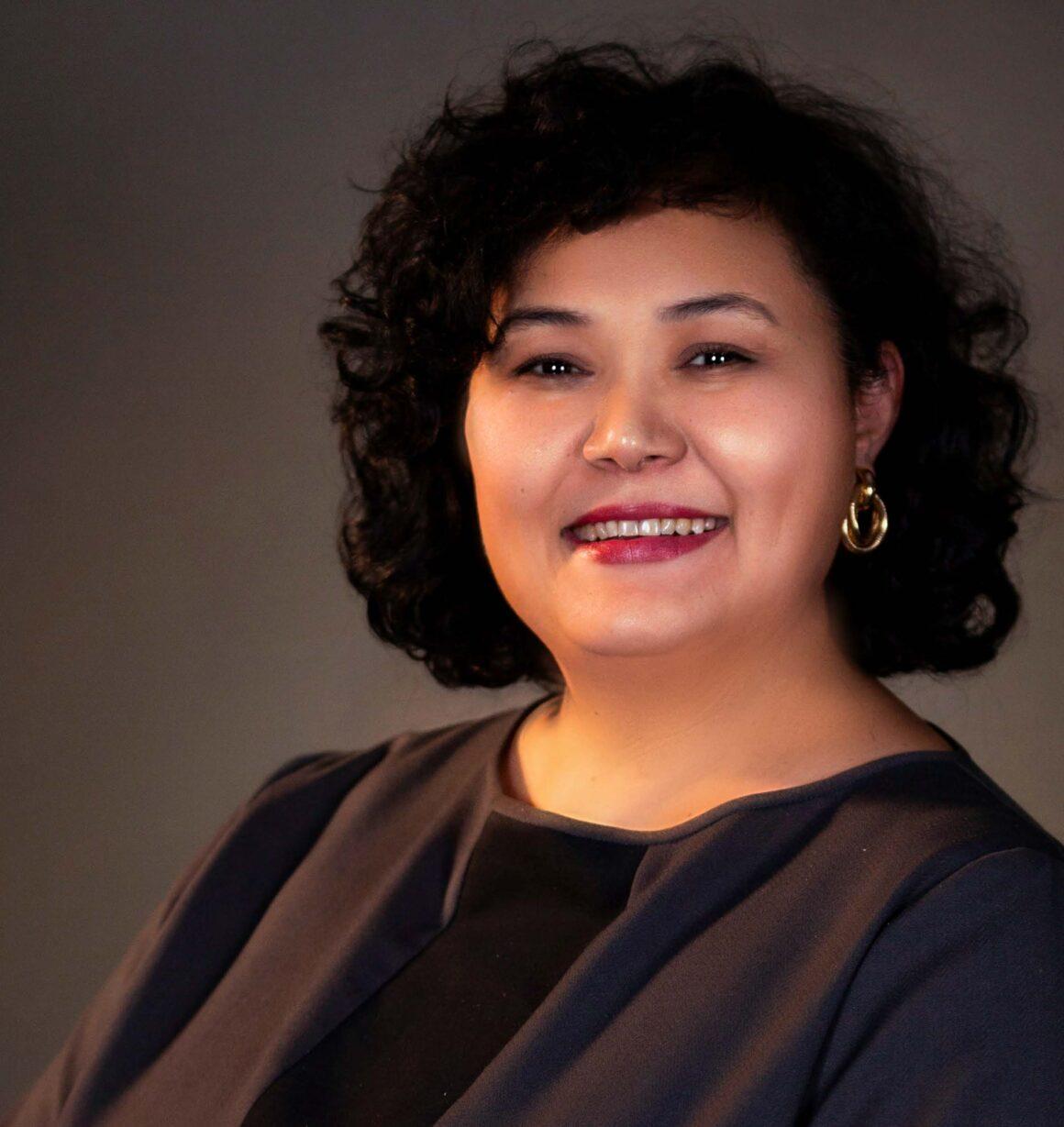
Madina Yussubaliyeva serves as a senior research manager at D. Serikbayev East Kazakhstan Technical University, where she provides project management on academic and international projects including for the TOEFL test center and international partnerships funded by American Councils, as well as serving as a team member of Capacity building projects funded by the Erasmus+ Program of European Union. She holds a Master’s degree in Management from Kazakh American Free University. Her research at CAP will involve gender-related issues in education and accessibility of university websites.

Mussa Turdalyuly is associate professor in the Department of Software Engineering at Kazakh National Research Technical University. He has a PhD in Information Technology, and has been a researcher on scientific projects such as Kazakh speech recognition, signal processing, etc. At CAP he will be conducting research for his project on “Ethnic minorities inclusion in Kazakhstani higher educations and their limits: Learning from the US.”

Nauzhan Didarbekova is a candidate in Philological Sciences. She se serves as Deputy Director for the National Testing Center of the Ministry of Education and Science of the Republic of Kazakhstan. She works on the development and discussion of college admissions regulations, the distribution and awarding of educational grants, and the improvement of external types of assessment. Her research interests include the study of international experience in university admissions, the development of academic integrity in external assessment, and quality training of teachers.

Sabina Manapova holds Bachelor of Education and Master of Technical Sciences degrees from Kazakh National Technical University. She is currently a Senior Manager for the Institute of Distance Education and Professional Development. Her research interests at CAP include postgraduate education in universities in the United States and improving this in Kazakhstani universities. She also would like to develop a distance learning program at the Kazakh National Technical University.
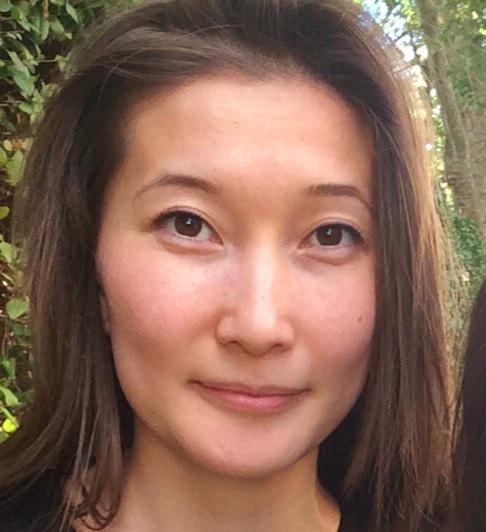
Samal Kazybayeva holds an MA in Psychology from Birmingham University (UK). She heads the International Cooperation Office at Toraighyrov University in Pavlodar. Her research at CAP focuses on the internationalization of higher education and on comparisons between the US and Kazakhstani systems.

Sholpan Kalkabayeva has been working as a methodologist specializing in kindergarten. She holds MA in Humanitarian Science and BA in pre-school education. Her research at CAP is on leadership in management and features of the early-childhood education system.
Erkin Eleussizov is a research projects manager and expert at the Center for Security Programs. He earned his Bachelor’s degree in GeoraphyEcology from Almaty State University. He has experience in the socio-political, cultural spheres, and worked at the Central Asian Agency of Political Research, Central Asian Press Club, CaspianNews Agency, the Center for Anti-Terrorism Programs, and Kazakhstan’s Political Science Association. His research interests include environmental safety and sustainable development. His current research concentrates on the impact of the climate change to the Central Asia.
GWU offers two tracks for prospective Bolashak Fellows:
Alma Utaubayeva, Pedagogy and Psychology
Zhibek Ussembayeva, International Sandartization Processes
Selected fellows may be in residence at GW for a period from one month to one year. Some may require up to six months of English language training before the fellowship. During their stay, Bolashak Visiting Fellows are closely mentored and guided by CAP members. They are given office space, computer access, and library privileges. They are expected to participate actively in the intellectual life at IERES, which may include talks, conferences, informal discussions, and other activities.
Aizhan Arshabayeva, U.S. Foreign Policy
Kirat Mussabekuly, U.S. Domestic Policy
International Affairs
Arman Jumabayev (JSC Kazakh Humanitarian Law University)
Countering Economic Crisis in Kazakhstan. A Legal Perspective
Gulnar Mamasharipova (M.Auezov South Kazakhstan State University, Chimkent)
Kazakhstan-US Relations Today
Makhabbat Shakhmanova (Kazakh University of the Humanities and Law, Astana)
Establishing and Developing Consumer’s Rights in Kazakhstan
Mukhtar Baktybekov (Semipalatinsk Institute of Law of Kazakh Humanitarian Law University, Semei)
Kazakhstan’s Development as a Welfare State: Theories and Practices
Rabiga Baimbetova (Kazakh University of Technology and Business, Astana)
The Assembly of the People and the Management of Interethnic Relations in Kazakhstan
Sergey Dyomin (Kazakh University of the Humanities and Law, Astana)
Foreign Investments through Joint-Ventures (on the basis on USA and Eurasian Union countries)
Serik Beissembayev (Social Fund “Centre for Social and Political Studies Strategy”)
Symbolic Boundaries of Ethnic Identity as an Issue for Nationbuilding in Kazakhstan
Zhaslan Nurbaev (Kazakh University of the Humanities and Law, Astana)
Regional Opinion on the Threat of Religious Extremism
Education Management
Aigul Askerbek (High School No. 66, Astana)
The Challenges of Teaching Reading in High Schools
Aizhuldyz Tolegen (High School No. 66, Astana)
How to learn English effectively at an early age?
Elmira Sarsenbayeva (Kazakh University of Technology and Business, Astana)
Effectiveness of Training Abroad for Master Students in Kazakhstan
Mansiya Kumisbayeva (University of International Business, Almaty)
Establishing and Developing Consumer’s Rights in Kazakhstan
Raushan Koilybayeva (Almaty Technological University)
How to Organize Student Research
Saltanat Khudaibergenova (Gymnasium 159, Almaty)
Malaysian Language Policy as an example for Kazakhstan?

